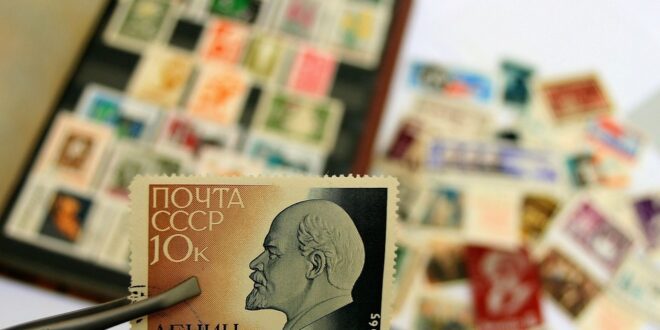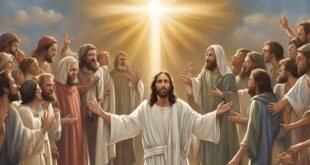30 Political Leaders Who Changed the World
Throughout history, the world has been shaped by numerous political leaders who have fought for change and left an indelible mark on society. From revolutionary thinkers to inspiring orators, these men and women have all left an undeniable impact on the world around us. Here are 30 political leaders who changed the world:
Nelson Mandela
Nelson Mandela is one of the most famous political figures in the world. He fought against apartheid in South Africa, dedicating his life to the struggle. His efforts ultimately led to the end of apartheid and he was elected as South Africa’s first black president in 1994.
Abraham Lincoln
Abraham Lincoln, the sixteenth president of the United States, is best known for leading the country through the Civil War and ending slavery. He was one of the greatest orators of his time and a symbol of hope and freedom for millions.
Mahatma Gandhi
Mahatma, also known as the ‘Great Soul’, questioned the various systems of Indian society and campaigned peacefully for India’s independence from British rule. Gandhi’s approach was to lead by example and to treat others the way he would wish to be treated. His legacy continues to inspire people all over the world.
Winston Churchill
Winston Churchill is best known as Britain’s war-time prime minister. During World War II, he inspired the British people to defend themselves against Nazi Germany. Churchill played an instrumental role in shaping modern Britain and a towering political figure in history.
Margaret Thatcher
Margaret Thatcher was the United Kingdom’s first female prime minister. She served from 1979 to 1990 and is considered one of the 20th century’s most significant political figures. Thatcher oversaw a period of unprecedented economic growth and strengthened the country’s international relationships.
Mikhail Gorbachev
Mikhail Gorbachev served as the last General Secretary of the Soviet Union. He introduced major reforms and was instrumental in bringing about the end of the Cold War. Gorbachev’s policies paved the way for democratic revolutions in Eastern Europe.
Barrack Obama
Barrack Obama is a contemporary political leader known for inspirationally leading the United States as President. He made significant progress during his presidency, passing the Affordable Healthcare Act and commencing dialogue with the leaders of North Korea.
Martin Luther King Jr.
Martin Luther King Jr. brought attention to the plight of African Americans through peaceful protests and nonviolent resistance movements known as Civil Rights Movements. His famous “I Have a Dream” speech became a symbol of the paragon for the broader fight against racial inequality and injustice.
Boris Yeltsin
Boris Yeltsin, a Russian politician and the first President of Russia, played a pivotal role in dismantling the Soviet Union. He was one of the key figures in the dissolution of the USSR and unanimously elected as the leader of the Russian Republic.
Benjamin Netanyahu
Benjamin Netanyahu is the longest-serving Prime Minister in Israel’s history. He has been in office now thrice, dedicating himself to the country’s success for decades. His leadership is well regarded globally, and he is credited with bringing stability to the region.
Aung San Suu Kyi
Aung San Suu Kyi is a Nobel Peace Prize laureate whose triumphs for democracy have inspired generations across the globe. She lived in Myanmar’s off-exile, and her nonviolent protest against the country’s military regime earned her worldwide recognition. She inspires fledgling democracies across the world from Africa to Eastern Europe.
Dilma Rousseff
Dilma Rousseff was the first female President of Brazil. Her commitment to fighting corruption and her efforts towards alternative energy practices were some of the significant reforms made during her administration until she was ousted due to allegations of corruption.
Pope Francis
Pope Francis is the spiritual leader of the Catholic Church. He has assumed strong stances toward world poverty and economic inequality, climate change, and global diplomacy. His leadership has helped restore the church’s future and encouraged renewed hope among its worshippers.
Xi Jinping
Xi Jinping is a communist revolutionary and currently the President of China. As the head of the Chinese Communist Party (CCP), Xi advocates for the construction of a new socialist nation with Chinese characteristics, notably against private enterprise entities within the Chinese market.
John F. Kennedy
John F. Kennedy was the 35th President of the United States. He led by personal inspiration, building political momentum due to his appeals to freedom, dialogue, and liberty. Kennedy tackled the foreign policy issues, including the peaceful reconciliation of the old Soviet Union and efforts towards democracy in Cuba.
Simon Bolivar
Simón Bolívar inspired, led and served in several Latin American countries against Spanish rule. He led significant victories that affected the region’s historical releases, Mexico, Peru, Columbia, earning him the reputation of a nationalistic firebrand.
Kwame Nkrumah
Kwame Nkrumah is a political figure known in Ghanaian politics as the main campaigner against colonialism. Nkrumah was the first President of independent Ghana, championing political and economic independence in Africa in the wake of World War II.
Vladimir Putin
Vladimir Putin’s influence in Russian politics is incontrovertible since capturing the presidency in 2001. Putin has continued standing strong due to high-priority acts such as energizing failing economies and rejuvenating the civil service. He buoyed his men who took part in contentious territorial annexations that grew Russia’s landmass.
Indira Gandhi
After three decades of Indian politics, Indira Gandhi stands as the world’s female prime minister. She showed admiration for North American progressivism movements of promoting gender equality, socio-cultural balance, and poverty alleviation during the mid-1970s. She faced vigorous opposition from the world and was blinded by her will towards socialist heavy-handedness.
Bashar al-Assad
Bashar al-Assad became President in the face of Syria’s escalation under his father, has now led his country for 20 years. Through brutal means, Assad has re-established stability within Syria’s national institutions and retained its position within the international arena.
Augusto Pinochet
Augusto Pinochet led a coup in Chile against Salvador Allende, the elected president of Chile, and birthed a disastrous landmark for excesses concerning foreign interferences. Operation Condor was initiated to target Allende’s allies abroad, featuring instances of horror and crimes against humanity backing extremists.
Jawaharlal Nehru
Jawaharlal Nehru assumed office in India following colonial release, was indisputable due to either compassionate reforms, advancements in agriculture, or strong socio-economic & educational foundations administration. In 1947 securing both support and respect-leading society remained his criterion.
Burhanuddin Rabbani
Burhanuddin Rabbani was a collaborative force for the Islamic community; he was appointed President of Afghanistan in the early ’90s by freedom fighters against communists. He preached unity during his short sabbaticals as President, transforming communities by becoming a male advocate for women seeking education in the interest of ongoing stability.
Mao Zedong
Mao Tse-tung or Mao Zedong’s communist ideology had a significant impact on China. Mao’s celebrated cultural revolutions demanded exceptional status quo changes and revolutionized education, numerous infrastructures curtailed, modified old icons, tradition-breaking sentimentality evident.
Ayatollah Ruhollah Khomeini
The Iranian spiritual and revolutionary leader of the Islamic Republic of Iran launched his country’s establishment against a backdrop of celebrations mere hours after the Pahlavi era ended. Sacrificing lives and time towards building Islamic republication spiritually mixed Iranian government and strived to preserve human culture and education trends alike.
Mohammed bin Salman
Mohammed bin Salman became crowned prince of Saudi Arabia following his father’s accession six years ago, once famously hoping to enhance Saudi Arabia’s economic operations through the introduction of a free market as it exchanged to crude unsustainable sources.
George Washington
George Washington shall comfortably sit among the ranks of iconic political leaders for being the seminal charge commander that surrendered thousands of armies at Valleys Forge alongside the modern-day Presidents like Nixon, Eisenhower liked America for what it was rather than who should rule it.
Emilia-Elena Lopéz Gastón
Emilia Gas, otherwise Ellis i-dootski de Gaston Luigi, encapsulated the country’s sensitive, raised cultural venues concerning their governance. She was the Pro-Rector of Córdoba’s Law Faculty, becoming Argentina’s first lady lawyer and the Hispanic-American continent’s fourth defying obvious gender-and-State clash-of-interest stumbling growth and progress.
Mohandas Karamchand Gandhi
Mahatma Gandhi advocated nonviolence and non-cooperation, inspiring his philosophy of truth and self-discipline which resonated across the politico-religious sectors across the globe. He inspired meaningful change and made music worlds away from the threatening sounds of brutality worldwide. Also known as Bapu, he served as an anti-colonial government figure.
Hugo Chávez
Hugo Chavez took charge of Venezuela during the nation’s pending economic preparations, striking Brazil and Argentina harder and harder due to arbitrary refinery servicing periods. He gathered power and initiated socio-economical changes, becoming a pan-indulgent continental symbol that wasn’t much impressive but rapidly dominated amongst the strong.
Sojourner Truth
Sojourner Truth championed equality the hard way inciting to and famously showed creating gender and racial equality parallel protocols pre-months before Blacks suffragettes in Arizona galvanizes political movement decades on womens-lib movement that rampantly staled leading the America that we know to great achievement interests.
Conclusion
These 30 political leaders changed the world in their own unique way. While many of their methods may differ, they all share the common goal of improving the lives of those around them. We can still learn valuable lessons from these great leaders, their ideologies and valuable pieces of advice they have left for those that come after.
 Mind Uncharted Explore. Discover. Learn.
Mind Uncharted Explore. Discover. Learn.



